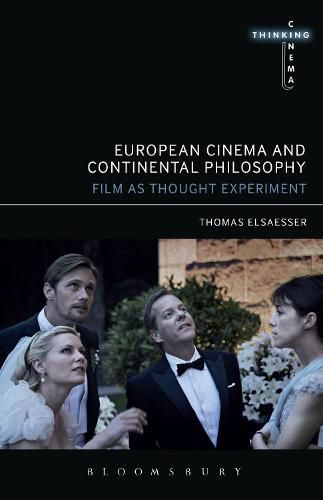Readings Newsletter
Become a Readings Member to make your shopping experience even easier.
Sign in or sign up for free!
You’re not far away from qualifying for FREE standard shipping within Australia
You’ve qualified for FREE standard shipping within Australia
The cart is loading…






This groundbreaking volume for the Thinking Cinema series focuses on the extent to which contemporary cinema contributes to political and philosophical thinking about the future of Europe’s core Enlightenment values. In light of the challenges of globalization, multi-cultural communities and post-nation state democracy, the book interrogates the borders of ethics and politics and roots itself in debates about post-secular, post-Enlightenment philosophy.
By defining a cinema that knows that it is no longer a competitor to Hollywood (i.e. the classic self-other construction), Elsaesser also thinks past the kind of self-exoticism or auto-ethnography that is the perpetual temptation of such a co-produced, multi-platform ‘national cinema as world cinema’. Discussing key filmmakers and philosophers, like: Claire Denis and Jean-Luc Nancy; Aki Kaurismaki, abjection and Julia Kristeva; Michael Haneke, the paradoxes of Christianity and Slavoj Zizek; Fatih Akin, Alain Badiou and Jacques Ranciere, Elsaesser is able to approach European cinema and assesses its key questions within a global context. His combination of political and philosophical thinking will surely ground the debate in film philosophy for years to come.
$9.00 standard shipping within Australia
FREE standard shipping within Australia for orders over $100.00
Express & International shipping calculated at checkout
This groundbreaking volume for the Thinking Cinema series focuses on the extent to which contemporary cinema contributes to political and philosophical thinking about the future of Europe’s core Enlightenment values. In light of the challenges of globalization, multi-cultural communities and post-nation state democracy, the book interrogates the borders of ethics and politics and roots itself in debates about post-secular, post-Enlightenment philosophy.
By defining a cinema that knows that it is no longer a competitor to Hollywood (i.e. the classic self-other construction), Elsaesser also thinks past the kind of self-exoticism or auto-ethnography that is the perpetual temptation of such a co-produced, multi-platform ‘national cinema as world cinema’. Discussing key filmmakers and philosophers, like: Claire Denis and Jean-Luc Nancy; Aki Kaurismaki, abjection and Julia Kristeva; Michael Haneke, the paradoxes of Christianity and Slavoj Zizek; Fatih Akin, Alain Badiou and Jacques Ranciere, Elsaesser is able to approach European cinema and assesses its key questions within a global context. His combination of political and philosophical thinking will surely ground the debate in film philosophy for years to come.